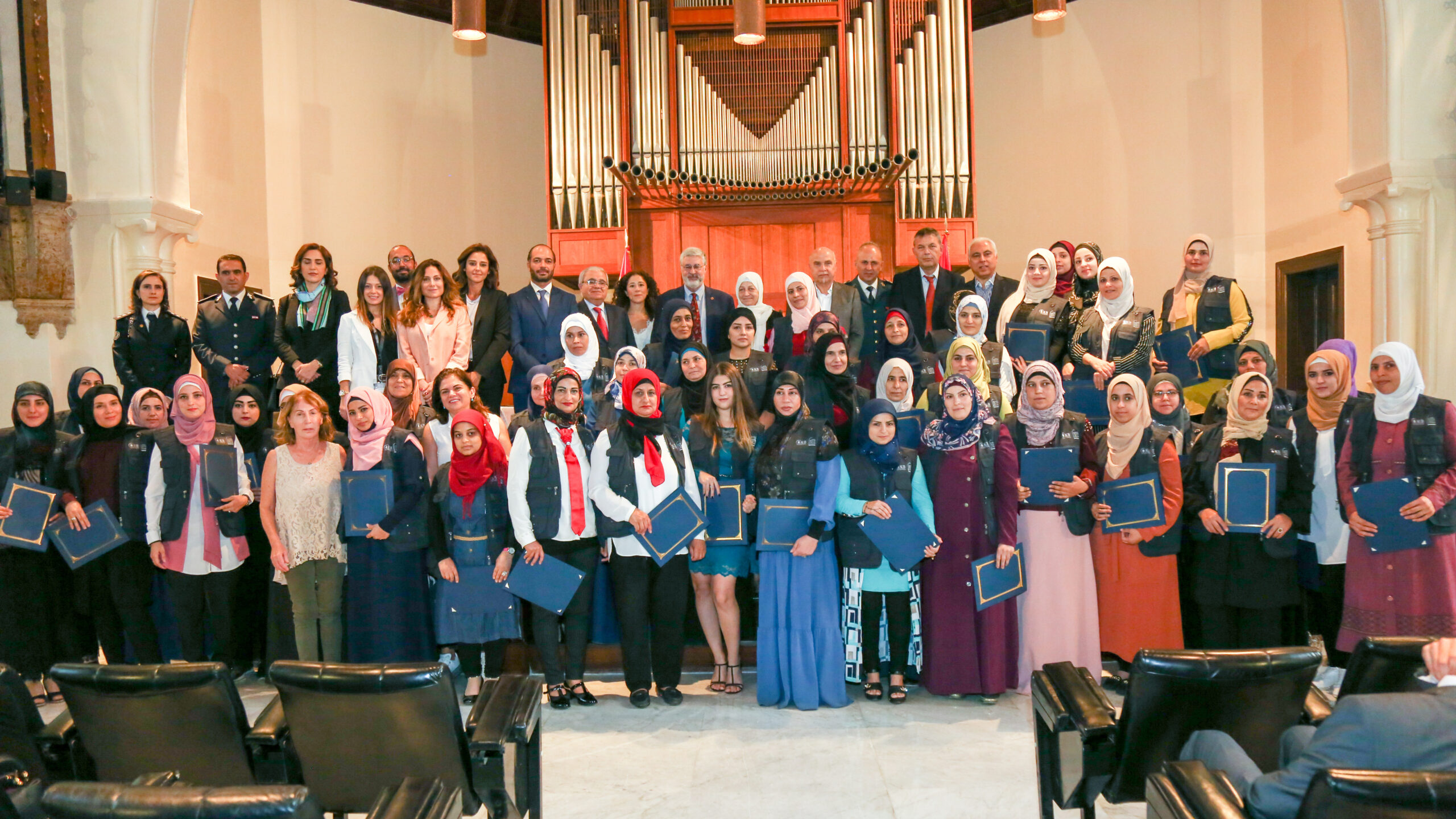Countless efforts have been put in the last few years to address the United Nations’ Sustainable Development Goals (UN SDGs) and the agenda 2030 in the Middle East and North Africa. Among the key issues focused on was gender inequality in the region, which is mainly evident in terms of women and girls’ access to education, healthcare, and the labor market. Although the educational attainment of girls and women has been on the rise generally, this has not been translated into their participation in the economy, and their job opportunities remain lagging behind [1].
The Global Health Institute (GHI) at the American University of Beirut (AUB) has been empowering women and targeting gender disparity through various initiatives, one of which is the Mobile University for Health (MUH). Launched in 2018 under GHI’s Academy division, MUH exhibits strong alignment with numerous UN SDGs, namely Good Health and Well-being, Quality Education, Gender Equality, and Decent Work and Economic Growth.
MUH aims to build and foster the professional health skills of female refugees and host communities, through its two components: Capacity Building and Community of Practice. The ultimate aim is to achieve an outcome of a competent healthcare workforce with recognized certification from the American University of Beirut.
Component 1
Capacity Building: Certificates in Health Disciplines
The Capacity Building component of MUH provides health education through certificates that focus on priority health topics, aiming to build the knowledge and skills of refugee and host community women and cater for their needs. Therefore, graduating women become equipped to overtake an active role in the delivery of accurate health-related information and activities within their communities.
Since 2018, MUH delivered over 17,000 learning hours to Syrian refugee and host community women located all over Lebanon, providing 160 women with health-related certificates

Component 2
Community of Practice: Making an Impact
The Community of Practice (COP) is the second component of MUH by which a community of practice is fostered among its graduates in vulnerable settings. As such, the MUH graduates would shift from being learners to being Community Health Workers (CHWs), providing community-based solutions within the areas where they reside, through leading events and activities that are supported by GHI.
Women participating in the COP were able to lead over 45 events on 37 different health topics with a reach to tens of underserved communities.
Attendees of the COP expressed a positive impact by the knowledge they gained from their counterparts, and in turn were able to benefit themselves and their surroundings, generating a ripple effect.
“Thanks to the awareness activities by the Community Health Workers, we realized the importance of visiting gynecologists, and demanding the necessary tests for our health”.
– COP Attendee



